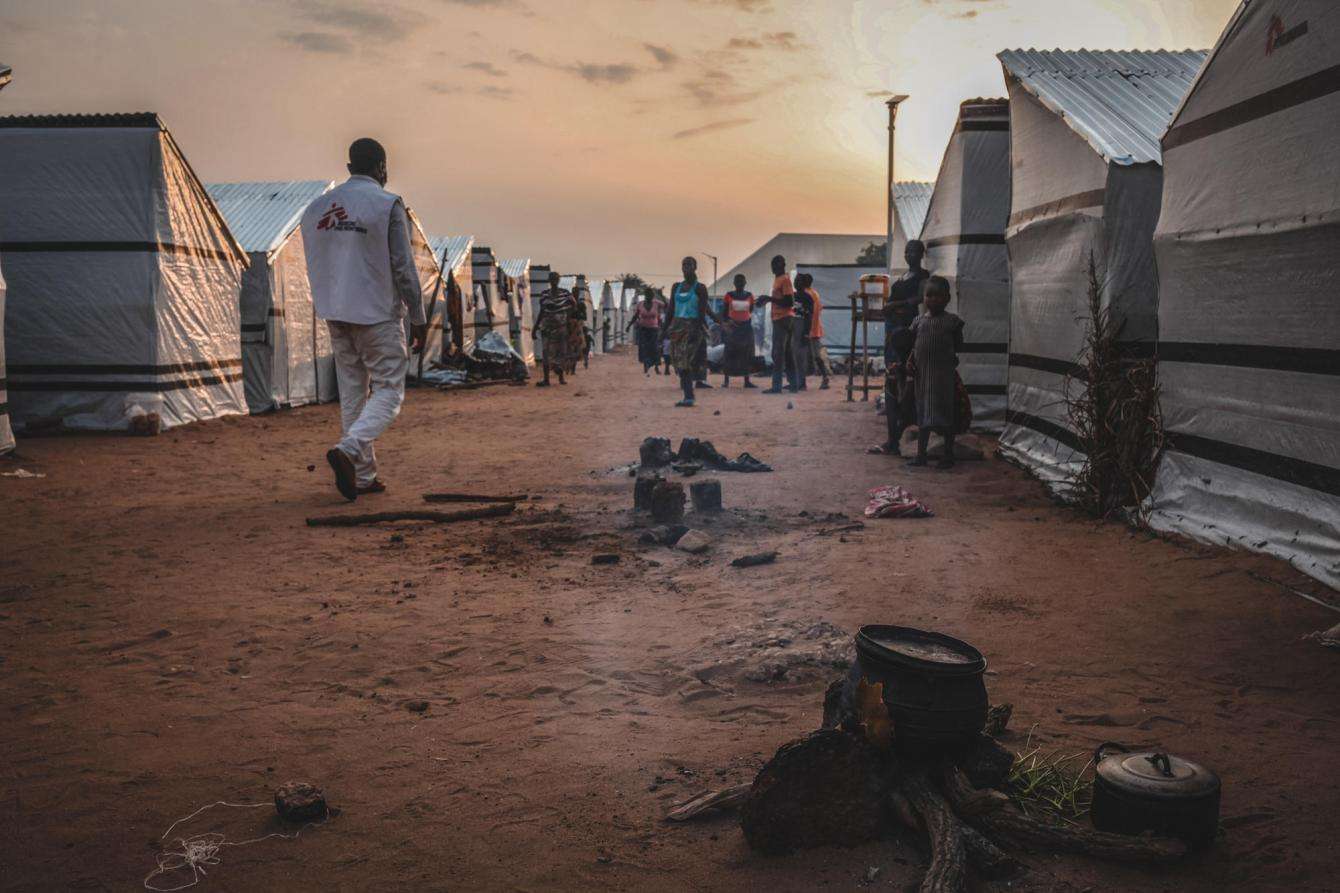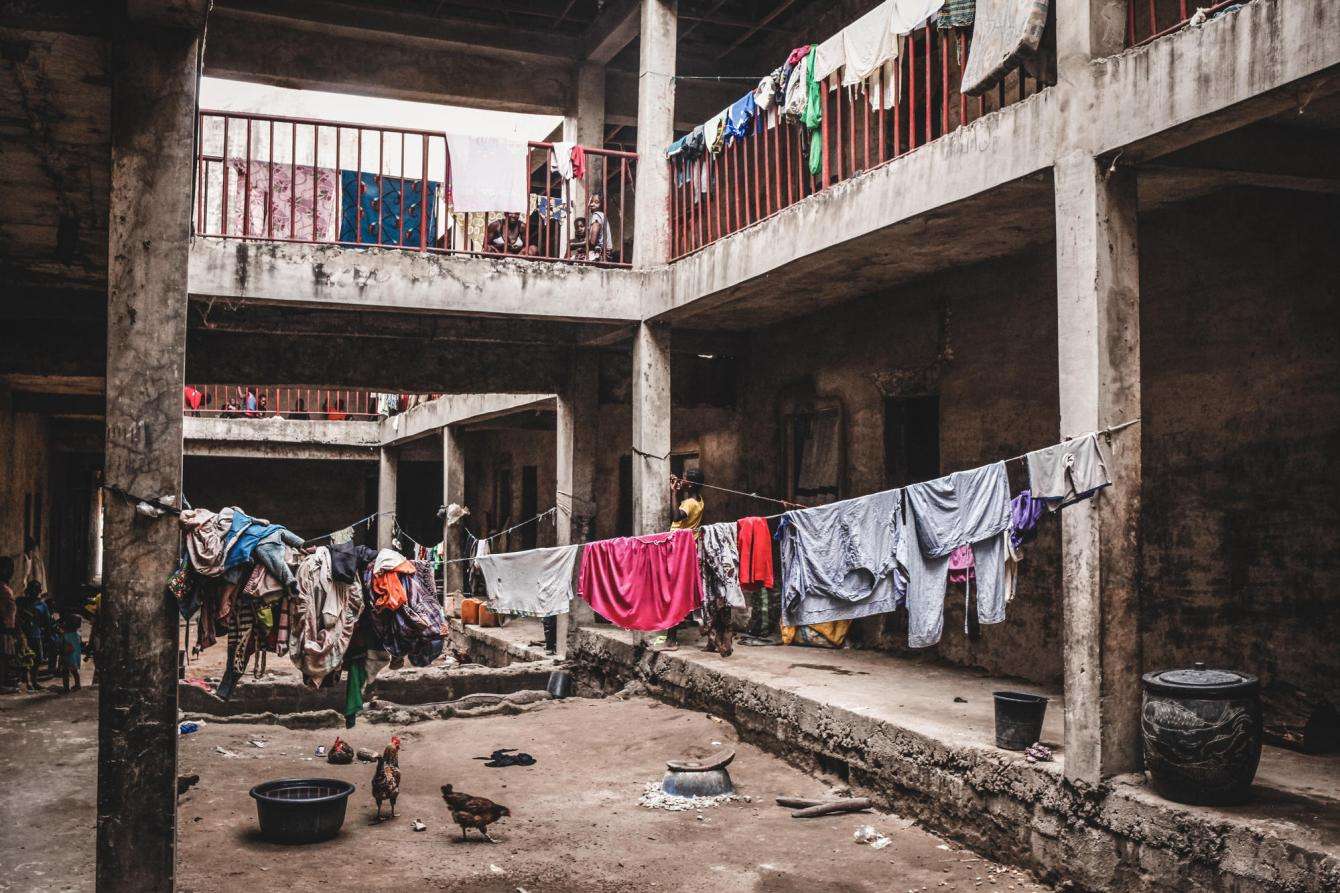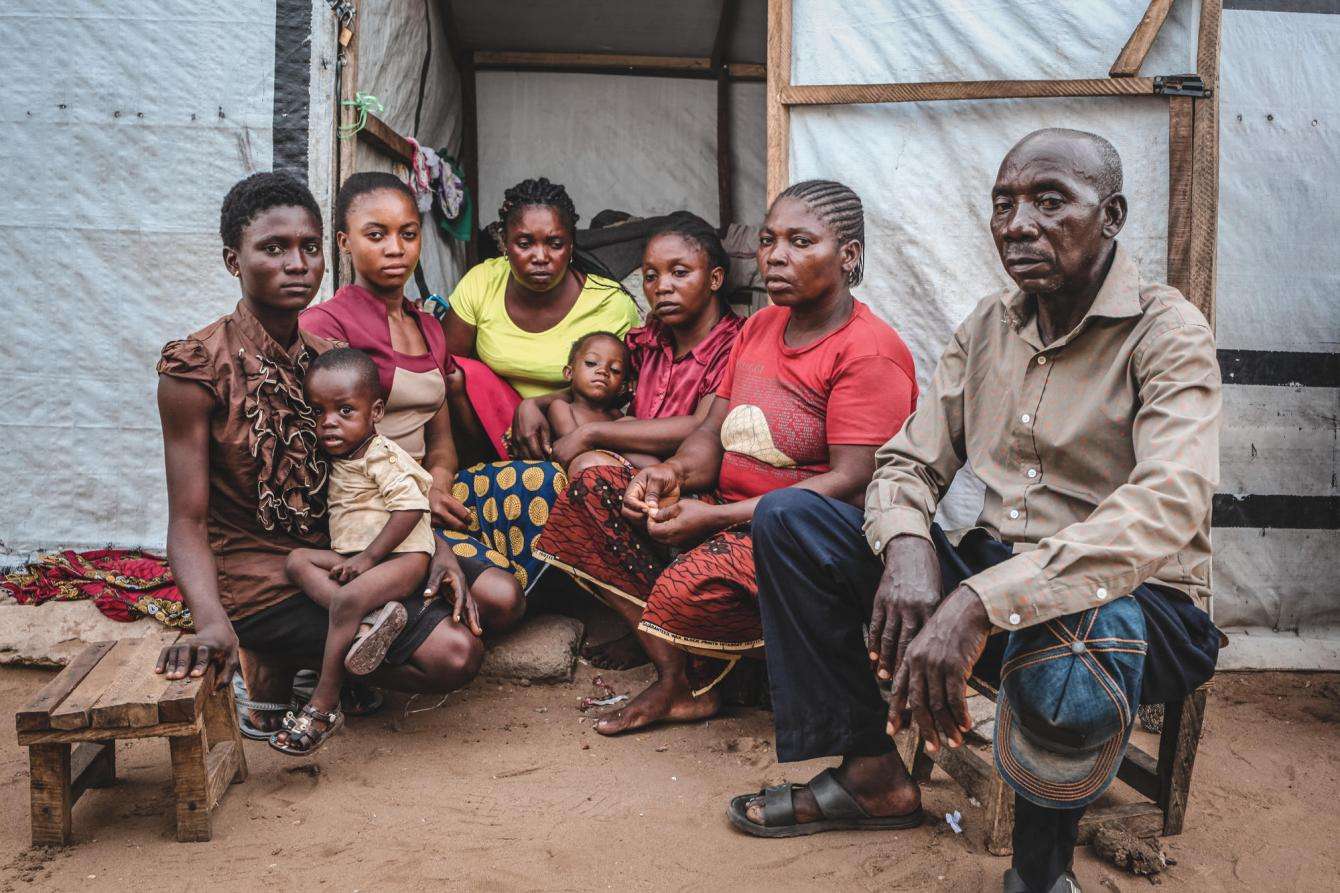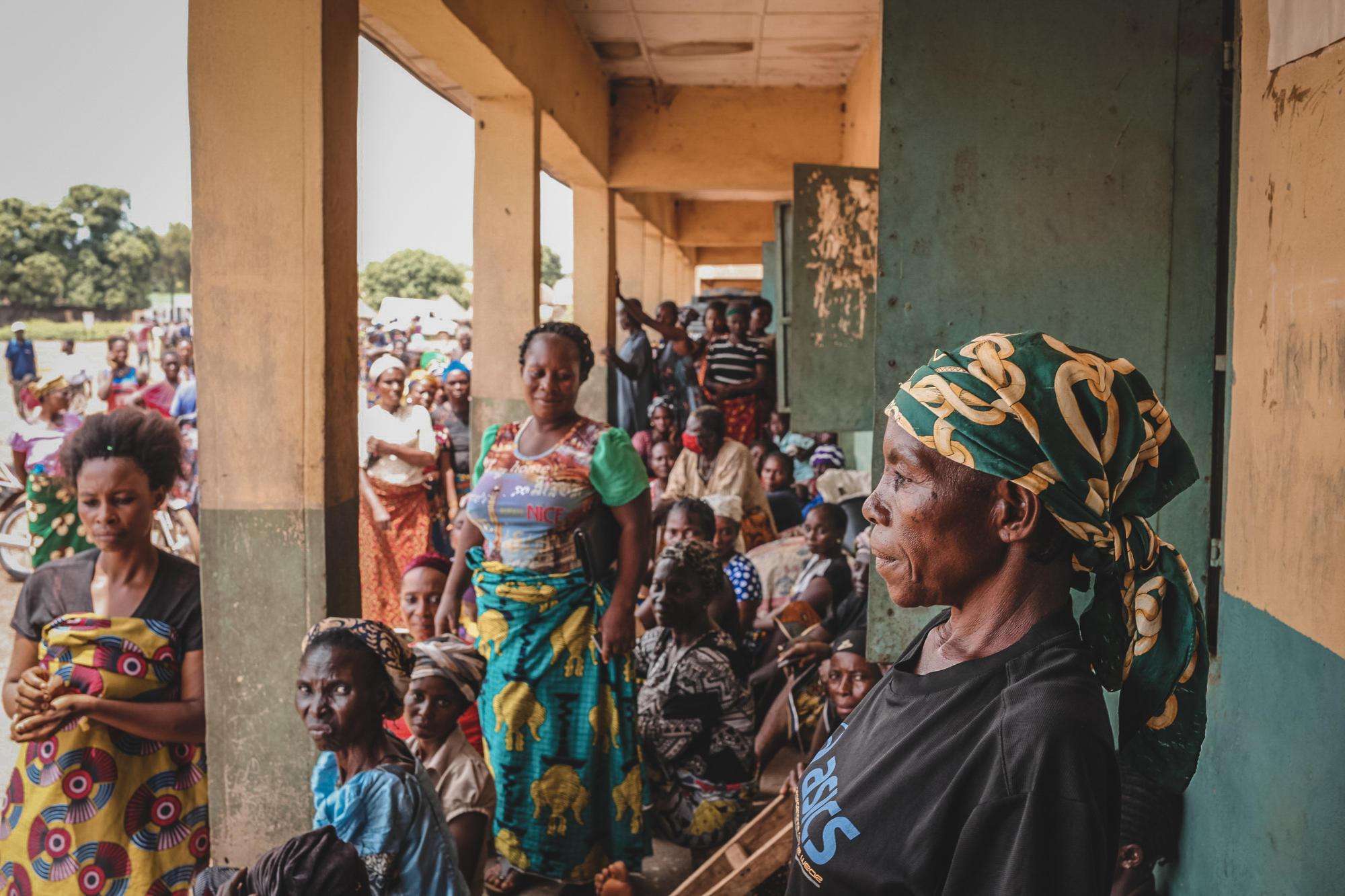Conflict between farmers and herdsmen has uprooted large numbers of people across the Middle Belt states of Nigeria—Adamawa, Benue, Kaduna, Plateau, Nasarawa, and Taraba—causing a serious humanitarian crisis. The conflict, while multi-layered and complex, is in large part driven by competition for food, water, and other resources. Some of the underlying causes include environmental degradation and the impacts of climate change, such as desertification, reducing available fertile land. Migratory herders are being pushed ever further south in search of land where their cattle can graze. Ongoing violence and insecurity in traditional grazing areas in the north are also forcing many herders to flee. The land that herders settle on, however, is claimed by farmers.
In 2018, a sudden violent escalation of previously seasonal clashes between herdsmen and farmers forced an estimated 300,000 people from their homes and killed 1,300. At least 160,000 displaced people are scattered across Benue state alone, according to the latest available estimates. Here, displaced communities, mostly farmers, live in one of eight official camps, or in informal camps or settlements, or stay with families in the host community (meaning people who were already settled in the area). These official estimates do not include the many thousands more people who have been displaced in 2020. In addition, there are more than 58,400 Cameroonian refugees living in Nigeria—mostly in Middle Belt states; more than 8,000 of them live in Benue.

“We get assurances about the future – we hear the crisis will end and we’ll be able to go home. But in reality, we don’t even think about going home. We know we need to make the best of it here,” said John Alenda, who lives in Old Market, Benue state. “I hope that people will hear my voice.”
Doctors Without Borders/Médecins Sans Frontières (MSF) has been working in Benue since 2018, mainly with displaced farming communities. There is much more to be done to understand what is happening in other Middle Belt states. In particular, there is a need to learn more about the often overlooked herding communities and the impact that the violence—including from cattle guards and vigilante groups—has on their lives.

In Benue, MSF provides a range of primary health care services: treatment for malaria; care for sexual and gender-based violence; health promotion, including for COVID-19; shelter and water and sanitation services, such as building and maintaining latrines and boreholes, and distributing soap. Across our project areas in Mbawa and Abagana (two of the official IDP camps), and in the Old Market informal setting, we have seen the number of displaced people nearly double this year, from 6,619 in January to 11,735 by July.
The crisis has not gone anywhere, but global attention and the humanitarian response has. A small fund set up by the United Nations in 2018 ($4 million for Benue and Nasarawa states) ran out long ago. Most agencies had already left by 2019. COVID-19 further impacted the few organizations that remained, as many suspended activities because of travel and staffing constraints, or diverted limited resources to preparing for the pandemic. Some organizations have since returned, bringing an increase in food distributions and improvements in water and sanitation. This is a positive development, but it is not enough. The needs continue to outpace the response. Reports from June 2020 that the Nigerian Ministry of Health budget may be slashed by 43 percent is another cause for serious concern.
People are exposed to the elements, and to malaria
In Benue, most displaced people arrive with few or no possessions, and little waiting for them. “After they killed my husband, I took my five children and came here,” said Philomena Agbobo, during an MSF assessment of the Naka IDP camp. “I arrived just as you see me now, with no possessions. The herdsmen burned my home and everything I had. I have no mat to sleep on, nor soap to wash with. Getting clean water is also a big challenge. I only have one mosquito net, and I use it to protect my youngest child.”
Another Naka resident, Orchi Godwin, also told us about the poor living conditions. “We sleep outside on the porch [of an old school building] here, and we don’t even have mosquito nets,” he said. “The women sleep indoors so that they have their own space. There are more people arriving here, and some of them have nowhere to sleep at all.”
In the Mbawa IDP camp, our teams have seen two or three families sharing a single shelter. In Old Market, multiple families huddle together under trees or disused market stalls as they desperately attempt to shelter.
Overcrowding, poor waste management, and problems with drainage mean many sources of water are dirty and unsafe. Diseases thrive in these conditions. Malaria is a particular concern, as mosquitoes breed in pools of stagnant water. Our teams have seen an exponential rise in patients with malaria in recent months, from 119 in May, to 666 in June, to 1,269 in July—the majority of cases affecting children under five years old. Their exposure to the elements also increases the risk of skin diseases and respiratory infections.

Farmers unable to plant or harvest
Many once successful farms have been destroyed. Even where land is still usable, many people report being too scared to return to plant or harvest. “I’ve been here a long time. We used to come and go—returning home to farm and then coming back here for safety—we’ve been doing that since 2015,” Orchi said. “But as of last year, it became much more dangerous to go home anymore.”
Today, many of those who used to produce crops in an area known as the food basket of Nigeria can no longer afford to buy food for themselves. As food supplies diminish, prices increase. “Now when you go to the market for a bag of corn, it costs 15,000 naira. It used to be just 5,000 naira,” said Edward Nyam, a former farmer in Mbawa camp. “I used to be a corn farmer, and now it’s difficult to even buy it!”

Since 2019, food distributions have been less regular and were reduced further with COVID-19. There have been improvements recently, but distributions still tend to cater only to those living in the official camps. John Alenda, who lives in the Old Market settlement, explained: “We have two major challenges here, food and shelter. Before the pandemic, there were more food distributions. There are 5,000 people living here. As this isn’t an official displacement camp, it’s harder to get supplies.”
People resort to desperate measures. “There isn’t any food here. When she was well, my mother would go to the market and scoop up the grains that fell to the ground, then she would use a sieve to separate the grains from the earth,” said Orchi. He was not the only person to recount this experience.
This humanitarian crisis can no longer be ignored
Despite the challenges, none of the people we spoke with think they can go home, at least not in the short-term. “When I think about going home, I remind myself that a live dog is better than a dead lion,” said Ugber Emmanuel, who lives in Mbawa camp. “There have been others who tried to return to their villages and were killed. We have no hope for now, but perhaps one day.”
Many people talk about the challenges in adapting to their new lives. “You no longer have the comforts of home. You don’t just share with family, you share with everyone, and nothing is ours,” said Oussange, an elderly woman in Mbawa camp. Often people told us about their fears for the future: “Even if we went home without violence, we would have to start all over again. There is no food or shelter waiting for us at home,” said Agbobo, who lives in Naka camp.
This humanitarian crisis can no longer be ignored. As MSF, we plan to do more to reach the affected communities on all sides of this crisis. We aim to reach beyond Benue, further into the Middle Belt. We cannot do it alone. At a minimum, basic water, sanitation, shelter, health care, and protection measures must be introduced. Achieving this requires engagement and commitment, both financial and physical, from Nigeria’s state and federal governments, humanitarian agencies, and the UN.




